Table of Contents
An essential part of an HVAC system that distributes heated or cooled air across a building is an AC air handler. It comprises chambers that control airflow, filter racks, and a blower. The primary operations involve:
- Bringing in outside air.
- Purifying it.
- Using the evaporator or heating coils to cool or heat it.
- Distributing it via pipes.
Regular maintenance is necessary to guarantee peak performance. This includes lubricating moving parts, cleaning, and examining coils for debris. For effective climate control and indoor air quality, it is essential to comprehend the operation and maintenance of an air conditioner. This article will discuss the vital functions and maintenance tips regarding AC air handlers.
If you want a detail guide of Bad AC Compressor Symptoms lets have a detail look
Key Functions:
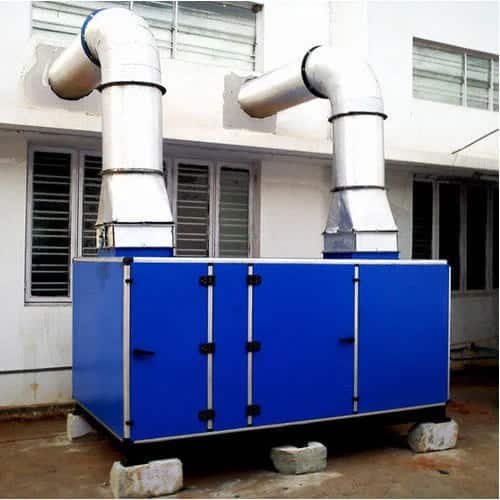
Air Circulation
Air circulation is essential to keeping indoor spaces efficient and comfortable. The AC air handler, a necessary part of an air conditioning unit, is central to this process. Air circulation disperses cool air across an area, maintaining a constant and comfortable temperature.
This process is powered by the AC air handler, which draws heated air from the room, circulates it through the cooling coils, and returns the freshly cooled air to the room. The variable speed motor, which enables precise control over the airflow, is an important part of contemporary air handlers. This guarantees that the appropriate temperature is reached effectively and uses the least energy.
The AC unit’s air handler keeps the room’s temperature consistent by constantly moving air, which helps prevent hot spots and guarantee occupant comfort. Additionally, adequate air circulation contributes to better indoor air quality by lowering humidity levels and limiting the buildup of contaminants.
The AC air handler and variable-speed motor enable the essential tasks of air circulation, which include temperature regulation, uniform distribution of cold air, and improved indoor air quality. Establishing cozy and healthful living or working spaces requires these features.
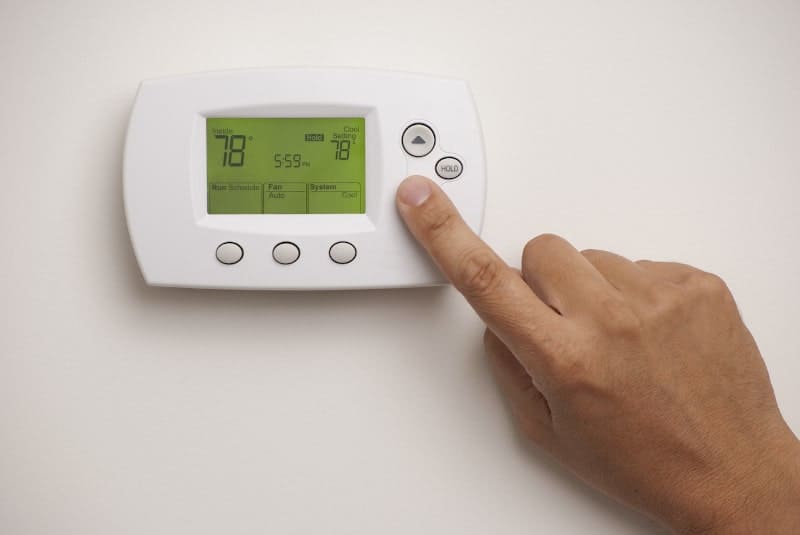
Temperature Regulation
Controlling the temperature is essential for preserving functionality and comfort in various settings, including homes and offices. Fundamentally, temperature regulation is the capacity to manage and maintain a specific space’s temperature. This procedure is essential for maintaining perishable items, protecting people, and maximizing equipment performance.
One of the fundamental purposes of temperature regulation is keeping the temperature constant. Heating and cooling systems maintain indoor temperatures within a specific range and counter outside temperature variations. The heating, ventilation, and air conditioning (HVAC) system and the interior environment can more easily exchange heat due to the circulation of air that AC air handlers provide throughout the room.
Controlling humidity is another vital role. Humidity levels, along with temperature, significantly impact indoor air quality and comfort. To maintain the ideal humidity levels for human health and comfort, AC air handlers help manage humidity by eliminating extra moisture from the air during cooling cycles and adding moisture back during heating cycles.
Temperature control systems also optimize the use of heating and cooling resources, increasing energy efficiency. Users can reduce energy usage and maintain comfortable indoor conditions by utilizing cutting-edge technologies like energy-efficient HVAC systems and programmable thermostats.
At its core, temperature regulation establishes and preserves an energy-efficient, hygienic, and comfortable interior environment. AC air handlers are a critical component of this process.
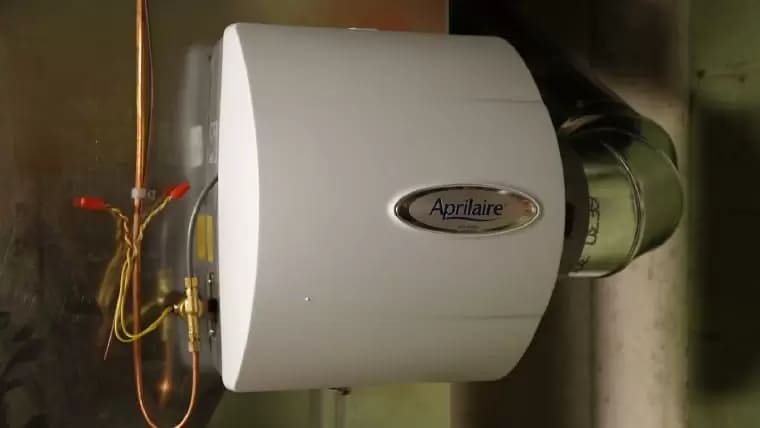
Humidity Control
HVAC systems with built-in air handlers are essential for controlling indoor air quality, including humidity and temperature. This integrated system guarantees a cozy and healthful atmosphere through efficient moisture management.
Air handlers with dehumidifiers are essential in areas with high humidity levels. By drawing moisture out of the circulated air, these devices keep the area from becoming damp and stop the growth of mold and mildew. Sustaining ideal humidity levels improves passenger comfort and lowers the risk of breathing issues from humid environments.
However, humidifiers built into air handlers are helpful in dry locations or during the winter when interior air tends to be dry. These devices add moisture to the air to avoid discomforts like dry skin, itchy nasal passages, and static electricity accumulation.
The air handler’s cooling coil also greatly aids in controlling humidity. Warm air condenses over the cooling coil, removing moisture and reducing relative humidity. The twin functions of dehumidification and cooling guarantee a balanced indoor climate year-round.
The performance of air conditioning systems is improved by integrating humidity control functions into air handlers. Which not only facilitates thermal comfort but also ensures ideal indoor air quality.
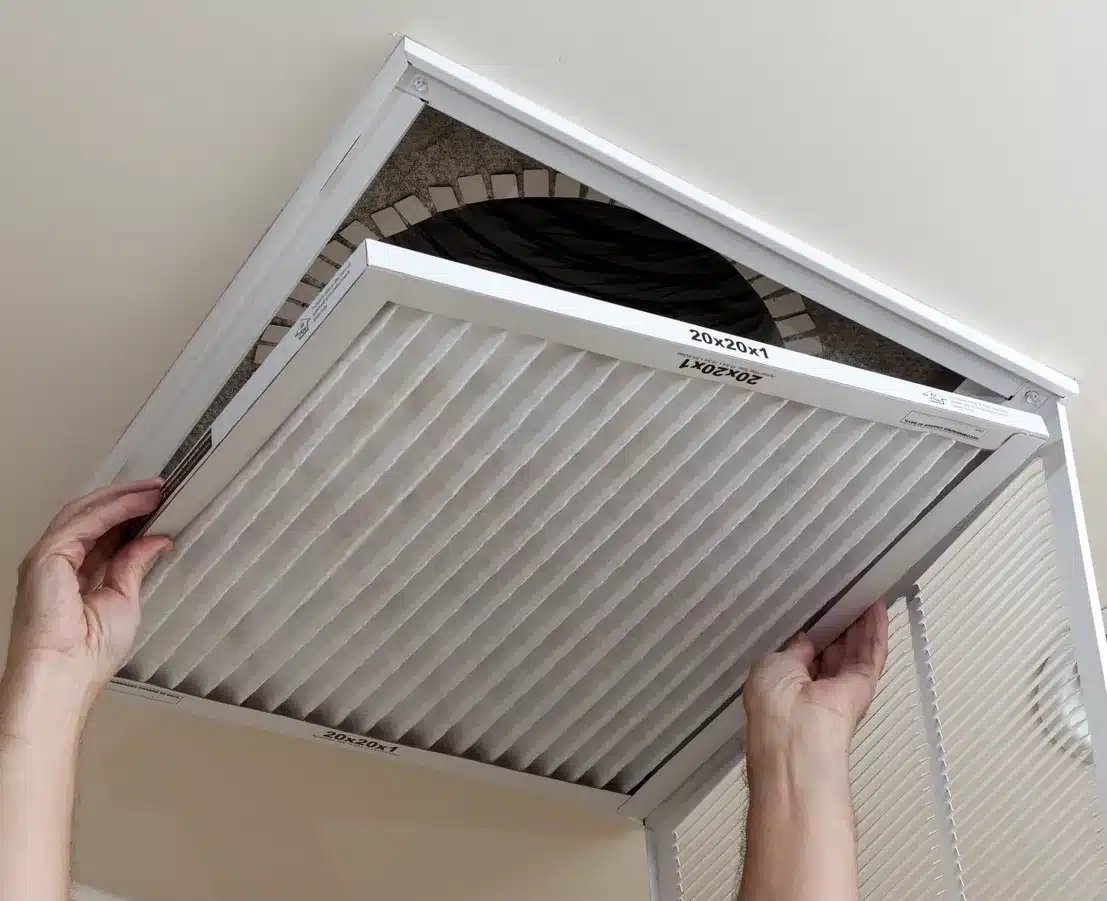
Air Quality Improvement:
Improving air quality is essential to indoor air management, particularly in spaces where AC air handlers regulate hot air. Because these ac air handler have multiple ways to filter out toxins and pathogens, they are essential to improving indoor air quality. Every kind of accessible air handler has a specific function in upholding the highest standards of air quality.
A popular technique is to use filters inside air handlers. Which are good at capturing dust, pollen, and other flying debris. As a barrier, these filters stop dangerous materials from moving inside buildings. Furthermore, cutting-edge technology like UV lights—which efficiently disinfect the air by neutralizing germs and mold spores—are integrated into sophisticated air handler systems. This proactive strategy guarantees residents a healthier indoor environment and purifies the air.
The significance of improving air quality highlights the need to choose appropriate air handler systems that are customized to meet specific needs. Selecting the right sort of air handler can have a significant impact on indoor air quality and comfort levels, whether it’s in a home or business. Thus, keeping clean and breathable interior air requires continued investment in high-quality air management solutions.
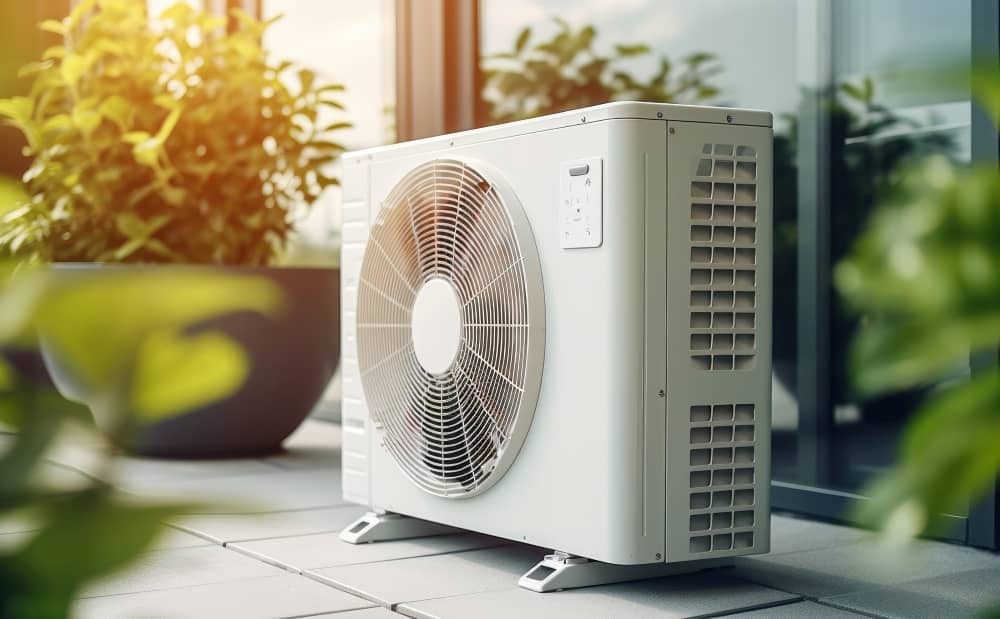
Fan Operation:
An essential part of any HVAC system. the air handler is critical to preserving ideal indoor air quality and temperature management. The fan, which powers the entire system’s air circulation, is at the center of the air handler. This circulation is essential for moving conditioned air from the air conditioner or heat pump to various structure areas to maintain constant comfort levels throughout the building.
Fan operation’s contribution to energy efficiency is one important feature. Users may effectively manage airflow, affecting energy usage by varying the fan speed. Lower fan speeds can improve overall energy efficiency and possibly cut utility expenses by using less energy while maintaining a comfortable level of airflow.
Furthermore, air quality is directly impacted by the ac air handler fan operation. A well-functioning ventilation system lowers the chance of indoor air pollutants like dust, allergies, and volatile organic compounds building up by minimizing stagnation and uniformly dispersing fresh air. This encourages a better interior atmosphere, which is essential for the productivity and well-being of occupants.
Regarding HVAC systems, the fan on the air handler needs to run smoothly to maximize energy efficiency, provide optimal comfort levels, and maintain high-quality air. Users may create a comfortable and energy-efficient environment that improves indoor air quality and saves on energy by learning how to alter fan settings.
Maintenance Tips:
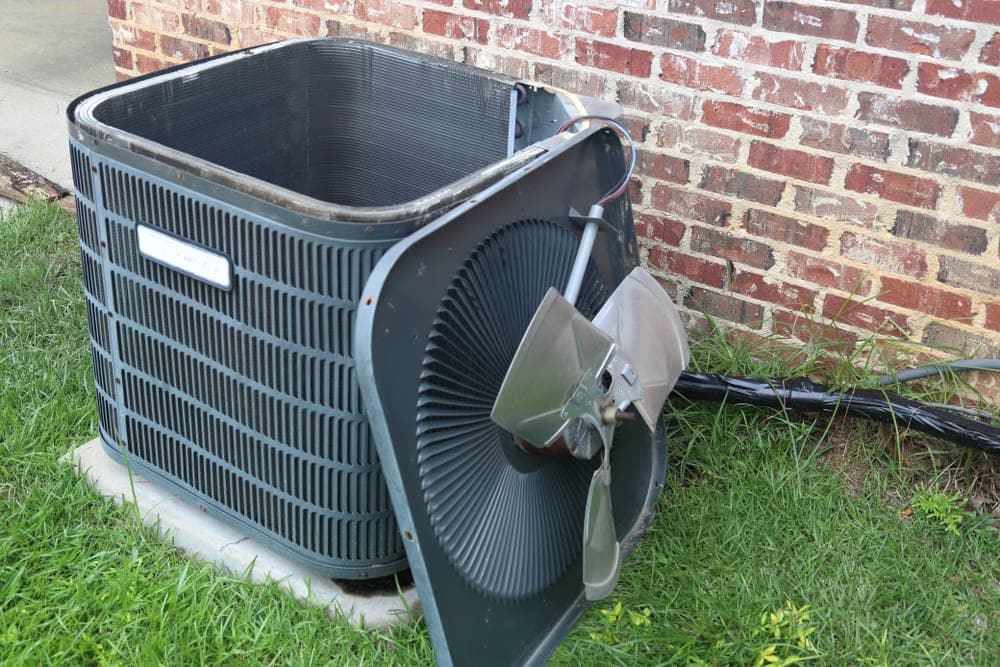 hvac-repair-coral-gables-fl.com
hvac-repair-coral-gables-fl.com
Regular filter replacement
Regular filter replacement is essential for your ac air handler and air conditioner to continue operating at peak efficiency and quality. Airflow is restricted by clogged filters, which reduces system performance and lowers the quality of air within buildings. Monthly checks are crucial to determine the state of the filter. Filters should be replaced every one to three months, depending on usage and environmental conditions.
If filter replacement is neglected, a series of problems may arise. Limited airflow stresses the system, increasing energy consumption and the cost of repairs. In addition, unhealthy air quality is dangerous, particularly for people with respiratory conditions.
Regular filter changes maintain interior air quality, extend system life, and guarantee effective functioning. Furthermore, clean filters lessen the strain on the air handler, which lessens component wear and tear. By reducing preventable breakdowns and increasing energy efficiency, this proactive strategy improves comfort and saves money over time.
Including routine filter replacement in your maintenance schedule can help maintain the longevity and functionality of your air handler and AC system. This chore is prioritized so you can experience cozy temperatures and purer indoor air.
Keep coils clean
Make frequent maintenance a priority to ensure your AC air handler operates at peak performance. The heat exchange effectiveness might be hindered over time by dirt and debris accumulating on the evaporator coil and heat exchanger. Increased energy costs and poorer performance may result from this accumulation. Plan yearly or manufacturer-recommended expert HVAC maintenance visits to keep coils clean and avoid these problems. Technicians will completely clean and inspect your AC system throughout these appointments to ensure it runs as efficiently as possible. Proactively caring for your air handler and coils prolongs the life of your HVAC system. Improving performance and ultimately saving you money.
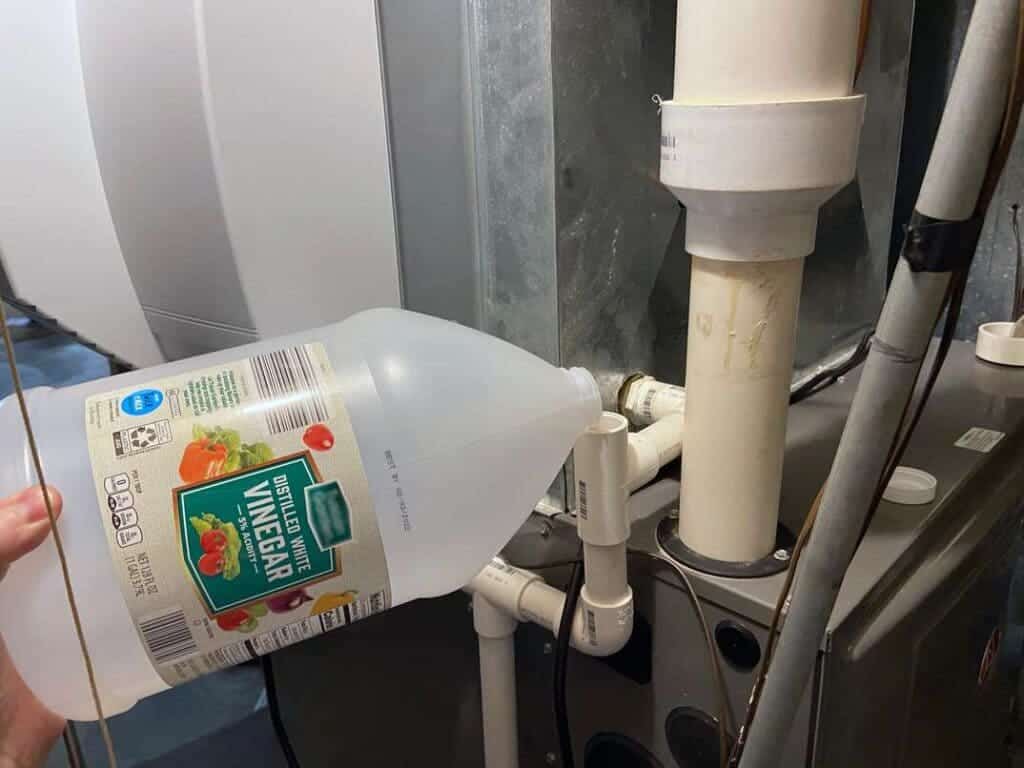
Check drainage
Prioritize drainage inspection when performing AC air handler maintenance to avoid future problems. Ensure there’s no obstruction in the condensation drain line to prevent water damage and stop the spread of fungus. To avoid accumulation, clean the drain pipe frequently. By adding an extra layer of security and warning you of possible issues before they get worse. Installing a drain pan overflow switch can help. By implementing these measures into your routine maintenance, you may protect your AC air handler from harm and extend its lifespan, assuring effective performance for its use. Take preventative measures with maintenance to enjoy continuous cooling and avoid future expensive repairs.
Schedule professional maintenance
Although homeowners can do certain maintenance activities, arranging for yearly professional HVAC repair is imperative. The system may be fully inspected and tuned by a certified technician, guaranteeing lifetime and peak performance. They will carefully examine every part. Including the air handler and air conditioning (AC) equipment, to find any faults or possible concerns. Frequent maintenance extends the life of your HVAC system by improving efficiency and averting expensive malfunctions. With special attention to the air handler, the technician will lubricate moving parts as needed, clean or replace filters, and inspect the ductwork for leaks or obstructions. They will also check the ventilation and airflow, which is essential for preserving the comfort and quality of the air indoors. Your AC and air handler will be in top working order and ready to keep your house pleasant all year long if you leave professional maintenance to the specialists.
